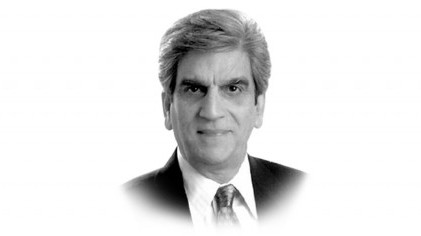sparklingway
SENIOR MEMBER

- Joined
- May 12, 2009
- Messages
- 3,878
- Reaction score
- 0
We have done well, so far
By Meekal A Ahmed
The writer has worked in the Planning Commission and the IMF (meekal.ahmed@tribune.com.pk)
May 29, 2010
The ongoing stabilisation phase of economic adjustment has gone well but as always there are nuances and reservations. The economys twin-deficits are better contained although there appear to have been some slippages on the fiscal side reflecting poor revenue performance and spending pressures. Inflation is down but there are disquietening signs that it is beginning to turn up again. This poses a difficult dilemma for the authorities. Should they tighten monetary policy to address inflation and risk killing off the nascent recovery or should they wait and hope that the rise in inflation will be temporary and subside as the effects of the pass-through of recent increases in the price of oil and gas fades and inflation resumes its downward course? There is no easy or quick answer to this dilemma.
The State Bank will have to remain in a heightened state of vigilance and act pre-emptively. More encouragingly, the first tentative signs of the economys arduous climb back up the steep path to potential output of around 6.5 per cent per annum growth a rate of growth the economy can sustain without inflationary pressures are in evidence even in the face of the drag being imposed on the economy by crippling power outages and a difficult security situation which keeps producers and investors on the sidelines in a watch-and-wait mode. Our foreign exchange reserves are up to around 15 billion and headed higher, the stock market, a good forward-looking barometer of economic risk and prospects as viewed by the market, is moving upwards. The speculative bubble in the real estate sector and commodities such as gold appear to have calmed.
The cynics and detractors will say other countries have done much better. They always point to India wahich puzzles me because I think Pakistan should hold itself to a higher standard. We should look at Brazil and China, or the former Asian Tigers to see how they have done and what we could have done better.
But since we are obsessed with India, politically and economically, let me make a few comments to try and satisfy that obsession. India has done well. It has weathered the global recession with demonstrated resilience and is looking at a growth rate in excess of 7.5 per cent per annum this year although there too inflation, led by surging food prices, is rearing its ugly head prompting its central bank to move into a tightening mode. India has done well because its starting position was stronger. It had the room and flexibility to ease the stance of its macroeconomic policies, fiscal and monetary, so as to cushion the effects of the downdraft arising from the global economic downturn. Its external deficit, always a binding constraint since neither India nor Pakistan, or any country for that matter, can print dollars to buy imports and service their eternal debts was only around one per cent of GDP. Pakistans external deficit in contrast was a staggering eight per cent of GDP.
India had room to maneuver; Pakistan did not. With a dangerously over-stretched fiscal situation which was mirrored on the external side in a precarious balance of payments position Pakistan had to go against the global grain and tighten, not loosen its policy stance. It simply had no choice given its precarious starting position and despite the pain that the economy and its people would have to endure in the process of adjustment.
Published in the Express Tribune, May 29th, 2010.


